Regulatory Roadmap for Herbal Medicines
Synopsis
Chapter 1 attempts to provide a "lay of the land" and strategies to navigate through the available regulatory and market landscape, through innovation and standardization. Herbal supplements are the fastest growing segment of the nutraceuticals market in the United States. A brief potpourri of herbs from different streams of traditional medicine which have become main stay in many herbal therapies and the identified active compositions are covered in chapter 2. A herbal preparation is, by definition, chemically complex, as it contains many naturally occurring compounds of the plant or plant part. In contrast, classic plant-derived drugs such as atropine, ephedrine, quinine, reserpine, and scopolamine, are single chemical entities. Although they are extracted from plants, they are isolated and purified to make modern conventional drugs and thus cannot technically be considered for equivalent use as the plant forms. Herbs are "graded" in commerce and there are generally anywhere from three to five distinct grades. Herbal therapeutic formulas are often based on traditional uses of the plant species in one geographical area, but commercial production often sources or grows the species somewhere else and the active contents may be different. These unregulated trading practices, fuelled by the growth of the market, frequently obscure the origin of the plant material and facilitate adulterations. Some of these practices with adverse consequences have damaged the reputation of otherwise relatively safe plants. Science-based marketing has advantages in global market place. A key trend of globalization is the growing importance of globally acceptable quality standards. Herbal healthcare segment consists of an assortment of "kitchen" companies. The products manufactured by these unorganized players vary in quality and purity, resulting in the end consumer receiving non-standard products. The primary roadblocks to this credibility the industry currently faces are lack of product standardization and quality control and absence of documentary evidence for clinical efficacy. The first set of questions faced by every manufacturer from the regulatory agencies is about the scientific evidence that the product contains all that is claimed on the label and how does it actually work. The whole process of plant-based medicines from plant to pill has to go through a phase of standardization in which there are strict quality controls throughout the value chain. Standardization is the process of analyzing a herb so that one or more of its key constituents is present in a predefined "standard" amount. The idea behind standardization is to ensure that each dose recommended contains consistent amount of the key ingredients that give desired and reproducible therapeutic effects. This demand could be for product registration or regulatory purposes or to satisfy customer needs about product quality and efficacy. All herbal remedies rely on evidence collected from many centuries of use by native populations but may not fit with the requisite model of 'randomized, double-blind, placebo-controlled trials' that's considered the gold standard for western medicine. Chapter 3 focuses on discussion about good agricultural practices, good manufacturing practices, good laboratory practices and good clinical practices and other ISO standards such as ISO 9001:2005 and ISO 17025. Codex standards are also increasingly being used as a benchmark for global trade, all medicinal plant-exporting countries like India and China have increased their participation in codex committees to ensure that domestic conditions are reflected in the development of international safety standards. Chapter 4 discusses about the scientific measurement framework which is a critical link in the international trade. World Trade Organization agreements are negotiated by all the member nations with the aim to help manufacturers, exporters and importers to conduct their transnational businesses. International agreements and decisions concerning global trade, the environment, and public health increasingly call for mutual recognition of scientific measurements and standards between nations. To ensure that all customer needs, technical and regulatory requirements are met, laboratories need a well founded, effective, comprehensive and defensible quality assurance system in place. Intellectual property issues related to medicinal plants gained prominence as a result of the legal wrangles for patents granted on neem and turmeric to companies, exposing gaps in the IPR regime. Another important pointer which reinforces the observation that developing countries have ethnobotanical resources and traditional knowledge worth protecting - is the controversy that raged from Basmati rice patent. A brief review of trends in patents based on herbal products and the legal hurdles faced by the developing countries in the protection of traditional medicines and marketing of these products in international markets is presented in chapter 5. The last chapter takes a look at the drug discovery efforts based on the designs from natural products, conservation of medicinal plants from bioprospecting and metabolic engineering studies that are being studied to improve the yields of active ingredients in certain medicinal plants. More than two thirds of the world's plant species, at least 35,000 of which have medicinal value, originate in developing countries. The traditional knowledge database in classical texts may be useful for bioprospecting and new drug discovery. While the trend in big multinationals has been towards high-throughput screening of synthetic compounds, the field is wide open for other companies focused on R&D in traditional medicines. A necessary condition for businesses to survive and thrive in the global arena is to embrace the world's differences in approaches to total health and healing.
Read more
65.70
59.13
$
73.00 $
Free delivery Wolrdwidе in 10-18 days
Ships in 1-2 days from New Delhi
Membership for 1 Year $35.00
Get it now and save 10%
Get it now and save 10%
BECOME A MEMBER
Similar items
-
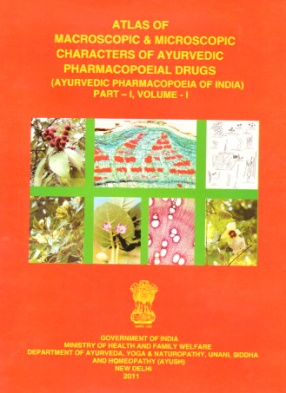
Atlas of Macroscopic & Microscopic Characters of Ayurvedic Pharmacopoeial Drugs: Ayurvedic Pharmacopoeia of India, Part-I, Volume I
-
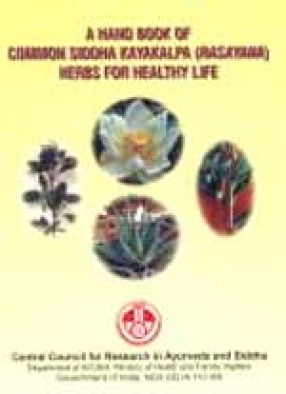
A Hand Book of Common Siddha Kayakalpa (Rasayana) Herbs for Healthy Life
-
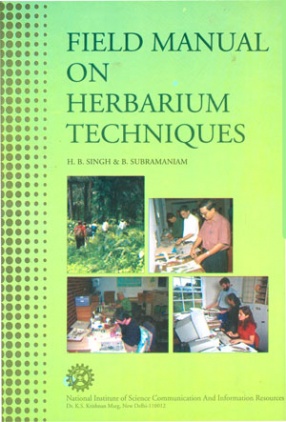
Field Manual on Herbarium Techniques
-
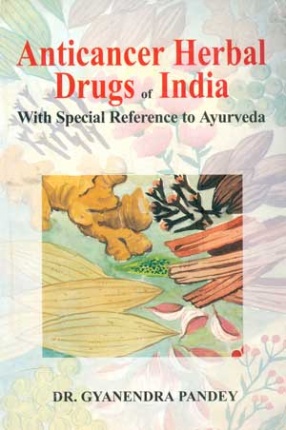
Anticancer Herbal Drugs of India: With Special Reference to Ayurveda

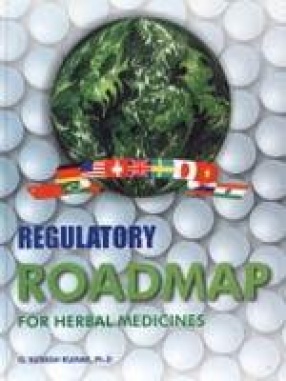

Bibliographic information